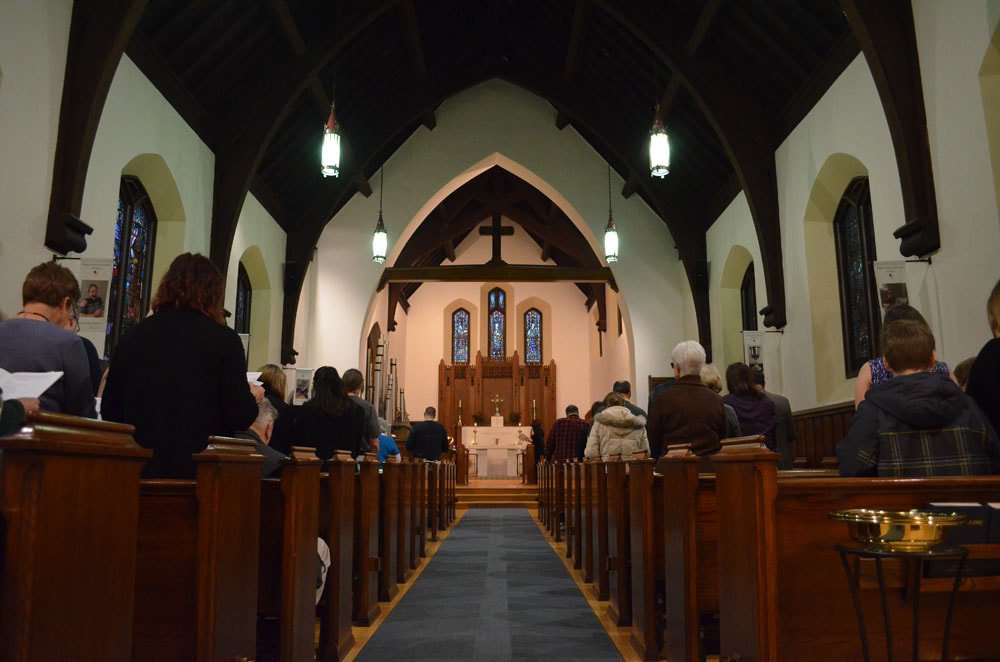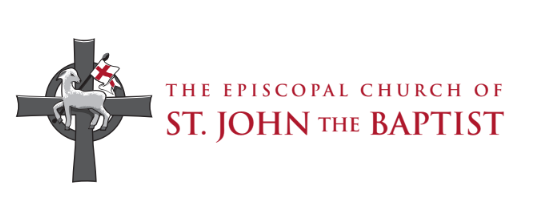
Our Strange & Historic Faith
A Brief Introduction
Our tradition is broad and deep, it is complicated and beautiful, rough around the edges and scarred, yet perfect in her way. This section is not meant to be comprehensive, but is meant to give an insight into our strange way of following Jesus Christ. Read on, and if you seek more, join us for the Divine Liturgy, break bread with our parishioners, and speak with our parish clergy. If you are so moved by the Holy Ghost, join us on our adventure, the adventure of the tension of Anglicanism, that odd tradition that is Catholic and Reformed, progressive and traditional, holding all things in tension, and in our imperfect way, in love.
-
Holy Scripture is the ultimate authority for faith and practice, containing all things necessary for salvation.
While tradition (especially the teachings of the early Church and the Ecumenical Creeds) is highly valued as a guide to interpreting Scripture and for understanding Christian doctrine, it is subordinate to and tested by Scripture. This is often referred to as prima Scriptura (Scripture first) rather than sola Scriptura in a way that might imply a disregard for tradition.
-
The "Catholic" aspect refers to the adherence to the faith of the "undivided Church" of the first millennium – the beliefs and practices universally held ("believed everywhere, at all times, by all," as per the Vincentian Canon).
This includes affirming the great Creeds (Apostles', Nicene, Athanasian), the decisions of the early Ecumenical Councils, and the threefold ministry of bishops, priests, and deacons in apostolic succession (understood as a sign of continuity and faithfulness to apostolic teaching).
-
Justification by Grace through Faith: A core Reformation doctrine emphasizing that salvation is God's free gift, received through faith in Jesus Christ alone, not by human works or merit.
Sacramental Theology: Affirmation of the two dominical sacraments (Baptism and Holy Communion) as effective signs of grace, instituted by Christ. While rejecting transubstantiation (as understood in Roman Catholic dogma at the time of the Reformation), classical Anglicanism maintains a high view of the Real Presence of Christ in the Eucharist, often emphasizing a spiritual presence received by faith.
Liturgy: Use of a vernacular liturgy (the Book of Common Prayer) that is both biblically grounded and draws from ancient liturgical patterns, reformed to remove medieval accretions deemed unscriptural.
Sovereignty of God: While a spectrum exists, classical Anglican formularies (like the Thirty-Nine Articles) reflect a moderate Reformed understanding of God's sovereignty in salvation.
-
Distinct from Roman Catholicism: Primarily in its rejection of papal authority and certain post-Reformation Roman Catholic dogmas, and its emphasis on the supreme authority of Scripture.
Distinct from some forms of Protestantism: While sharing core Reformation principles, Reformed Catholicism in Anglicanism typically maintains an episcopal polity (government by bishops), values liturgical worship more highly than some non-liturgical Protestant traditions, and emphasizes continuity with the early Church's sacramental and creedal heritage.
A "Via Media" (Middle Way): Historically, some Anglicans have described this as a "middle way," not as a compromise, but as a distinct path that sought to be faithful to Scripture and the early Church while reforming medieval excesses. For Reformed Catholics, this "middle way" is about retrieving and re-forming the authentic Catholic faith.
-
Biblically faithful: Holding Scripture as the ultimate rule of faith.
Historically rooted: Valuing the continuity of faith and order with the early and undivided Church.
Liturgically rich: Expressing its faith through structured, biblical, and historically informed worship.
Sacramentally grounded: Recognizing the sacraments as vital means of God's grace.
Episcopally ordered: Maintaining the historic threefold ministry.
-
Sacramental Life: A high view of the sacraments (especially Baptism and Holy Communion) as effective means of grace, instituted by Christ. This often includes a belief in the Real Presence of Christ in the Eucharist.
Liturgical Worship: Appreciation for historic liturgical forms of worship, often drawing from the Book of Common Prayer and valuing the structure, beauty, and theological depth of traditional Anglican liturgy. This may include more ceremonial elements than typically found in "low church" evangelical settings but might be less elaborate than some "high church" Anglo-Catholic expressions.
The Church as a Divine Institution: Emphasis on the Church as the Body of Christ, a divinely instituted community with a visible structure and historical continuity.
Apostolic Succession and the Historic Episcopate: Value for the threefold order of ministry (bishops, priests, and deacons) and the continuity of the Church through the historic episcopate, seen as a sign of unity and apostolicity.
The Great Tradition: A respect for the teachings of the early Church Fathers, the Ecumenical Councils, and the historic Creeds as guides to interpreting Scripture and understanding Christian doctrine.
-
Biblical Authority: A strong emphasis on the supremacy and sufficiency of Holy Scripture as the Word of God and the ultimate rule of faith and practice.
Conversion and New Birth: Stress on the necessity of a personal conversion experience, repentance, and faith in Jesus Christ for salvation, leading to a transformed life.
Crucicentrism: A focus on the atoning sacrifice of Jesus Christ on the cross as central to salvation and Christian life.
Evangelism and Mission: A commitment to proclaiming the Gospel and making disciples.
The Work of the Holy Spirit: Recognition of the active role of the Holy Spirit in conversion, sanctification, and empowering the Church.
-
The Episcopal Church, the American Provence of the Anglican Communion, is a “Big Tent.” We hold many things in tension, and always in mutual love and forbearance. Within Anglicanism are theological progressives and conservatives, those who have widely disparate ideas on things. Though, in the spirit of catholicity and Christian unity and love, we remain together. At St. John’s we all agree on the dogmatic truths of the Great Creeds, but may disagree on other things. This can be a challenge at times, but we believe that this intentional community of Christians who pray together and eat together, will be made more perfect by this life of love and tension.
